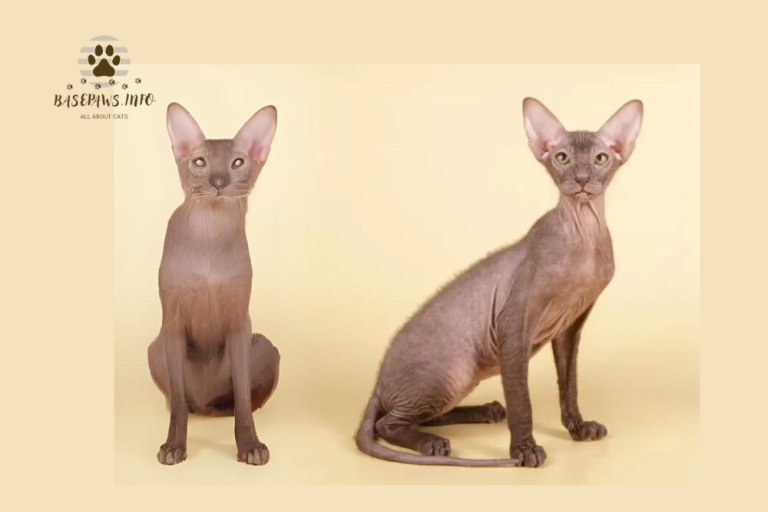The Charming Cornish Rex
Introduction
Finding the perfect cat breed can be a bit overwhelming, especially with so many options out there. Many pet lovers want a furry friend that fits well into their lifestyle—playful, affectionate, and low-maintenance. If this sounds like you, the Cornish Rex might just be your ideal match. With its unique looks and friendly personality, this breed can solve many common pet ownership challenges.
In this guide, we’ll dive deep into everything you need to know about the Cornish Rex. From its quirky characteristics to essential care tips, we’ll help you understand why this breed is so beloved. By the end, you’ll be equipped with the knowledge to decide if this is the right fit for your family.
So, whether you’re a first-time cat owner or a seasoned pet parent, we’re here to help you navigate the wonderful world of the Cornish Rex. Let’s get started!
Breed Overview
The Cornish Rex is a truly unique breed, celebrated for both its playful spirit and striking appearance. Let’s explore what makes this cat so special.
Characteristics
- Size: Medium-sized, typically weighing between 5-10 pounds
- Lifespan: 12-15 years
- Coat: Short and curly, with a soft, velvety texture
Appearance
The Meow is hard to miss with its sleek body and oversized ears. Its coat is not only adorable but also low-shedding, making it a great choice for allergy sufferers. Here’s a quick overview of its appearance:
| Feature | Description |
|---|
| Coat | Short, curly, and soft due to a genetic mutation |
| Body Type | Sleek, slender, and athletic |
| Head Shape | Wedge-shaped with high cheekbones |
| Ears | Large and bat-like, often set high on the head |
| Eyes | Oval-shaped, wide-set, and expressive |
| Tail | Long and thin, tapering to a point |
| Legs | Long and slender, contributing to an elegant stance |
Breed History
The Cornish Rex has an interesting backstory. It all started in Cornwall, England, in the 1950s when a litter of kittens was born. One kitten had a unique curly coat that caught the eye of local breeders. Recognizing its potential, they began to develop the breed we know today. By the 1960s, the Cornish Rex was officially recognized and quickly gained popularity for its playful personality and distinctive looks.
Cornish Rex Personality and Temperament
If you’re looking for a friendly and engaging cat, the Cornish Rex won’t disappoint. They are known for their playful and affectionate nature, making them a joy to have around. Here are some key traits:
- Playful: These cats love to play and can entertain themselves—and you!—for hours.
- Affectionate: They thrive on companionship and enjoy cuddling up with their humans.
- Intelligent: These cats are quick learners, often picking up tricks and commands easily.
Special Considerations for a Cornish Rex
While this is a wonderful breed, there are a few things to keep in mind. Their short coat means they don’t require extensive grooming, but it also makes them sensitive to temperature changes. Keeping them indoors in a comfortable environment is essential, especially during extreme weather.
Cornish Rex Cat Training
Training your cat can be a fun and rewarding experience! Cats are eager to please and smart, which makes them quick learners. To get started, here are some helpful tips: first, use positive reinforcement by rewarding good behavior with treats or praise. This encourages your cat to keep it up! Keep your training sessions short, since cats have short attention spans. Brief and engaging sessions work best. Lastly, be consistent with the commands and signals you use, so your cat doesn’t get confused. With these tips, you and your cat can enjoy a great training experience together!
Care of Cornish Rex
Exercise
Cornish Rex cats are full of energy and need regular playtime to stay fit and happy. Daily interactive play sessions with toys like feather wands or laser pointers will keep them active and entertained.
Easy Grooming Routine
Grooming a Cat is simple thanks to their short, curly coat. A weekly brushing and the occasional bath will keep them looking and feeling their best.
Living Needs
These cats love to explore and interact with their environment. Providing cat trees or shelves can enhance their living space and give them plenty of opportunities to climb and play.
Health Problems
Like all breeds, these cats can be prone to certain health issues. Here are a couple of common concerns:
Progressive Retinal Atrophy (PRA)
This genetic condition can lead to vision loss over time. Regular veterinary check-ups will help keep an eye on their eye health.
Hypertrophic Cardiomyopathy
This heart condition is common in many cats, including Cornish Rex. Regular vet visits can help catch any issues early on.
Diet and Nutrition
What To Feed a Cornish Rex
A balanced diet is vital for your Feline health. Look for high-quality cat food that lists meat as the first ingredient.
How To Feed a Cornish Rex
- Measure Portions: Follow the feeding guidelines on the packaging to avoid overfeeding.
- Regular Schedule: Try to feed them at the same times each day for consistency.
How Much Should You Feed a Cornish Rex?
On average, adult cats need about 1/2 to 1 cup of dry food per day, depending on their size and activity level.
Suggested Nutritional Needs for Cornish Rex
- Protein: 30% or higher in their diet
- Fat: Around 15-20%
- Vitamins and Minerals: Ensure a balanced mix for optimal health

Where to Adopt or Buy
If you’re ready to welcome a Cornish Rex into your home, consider adopting from a shelter or a breed-specific rescue. Reputable breeders are also a great option, but make sure they follow ethical breeding practices.
Grooming Cornish Rex Cats
Grooming a Cat is relatively easy due to their short coat. Here are some tips to keep them looking their best:
- Brush Regularly: Use a soft brush to remove loose hair and keep their coat healthy.
- Occasional Baths: They can benefit from occasional baths to keep their skin and coat in top condition.
Fun Facts About Cornish Rex Cats
These adorable animals have a special curly coat that comes from a natural genetic mutation. One of the best things about them is their playful nature—they often act like kittens even when they grow up, which makes them really fun to be around. Here’s a cool fact: the word “rex” means “king” in Latin! This name comes from King Albert I of Belgium, who showed off his curly-furred rabbits. Even though these cute rabbits didn’t meet the fancy standards of the time, they were called “rex” to honor the king. It’s a fun piece of history that shows how our pets can have interesting stories!
Pros of Cornish Rex
- Low grooming needs
- Friendly and social demeanor
- Great companions for families and individuals alike
Cons of Cornish Rex
- Sensitive to temperature changes
- Need for regular playtime and interaction
Cornish Rex Behavior
These cats are known for their curiosity and playfulness. They enjoy exploring their environment and often bring joy to their families with their antics. Their affectionate nature makes them wonderful companions, always ready to curl up on your lap or join you in a game.
Fun Activities for Cornish Rex Cats
Keeping your Feline entertained is essential. Here are some fun activities to try:
- Interactive Toys: Choose toys that require them to think and move, like puzzle feeders.
- Cat Agility Courses: Set up a mini agility course at home using tunnels and jumps.
- Hide and Seek: They love exploring, so hiding treats around the house can be a fun challenge.
Breed Future
The future of this breed looks bright. As more people discover their unique qualities, demand for this charming breed is increasing, leading to more responsible breeding practices and care.
Considerations for Pet Parents
Before bringing a Cat into your life, think about your lifestyle and how much time you can dedicate to play and companionship. These cats thrive on interaction, so be prepared for a lively, loving companion!
Cornish Rex FAQs
What’s the difference between a Cornish Rex and a Devon Rex cat?
While both breeds have curly coats, the Cornish Rex is generally slimmer with larger ears, while the Devon Rex has a rounder head and a different fur texture.
How much does a Cornish Rex cost?
Prices can vary widely, typically ranging from $800 to $2,000 depending on the breeder and lineage.
Are Cornish Rex cats cuddly?
Absolutely! They are known for their affectionate nature and love to snuggle with their humans.
What’s special about a Cornish Rex cat?
This Cat stands out for its curly coat, playful personality, and strong bond with people, making it a cherished choice for many families.
In summary, the Cornish Rex is a delightful breed that brings joy and companionship into the lives of its owners. With their playful personalities, unique appearance, and low grooming needs, they make fantastic pets for many households. By understanding their characteristics and needs, you can create a loving and fulfilling home for your Cornish Rex.
Meet this charming Cornish Rex!
Always ready for fun and games!
Now that you know all about the Cornish Rex, you’re ready to decide if this unique breed is the perfect addition to your family!







